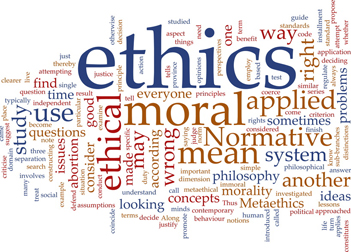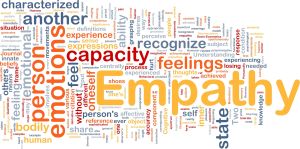Morality exists within the limits of reason.
But is there a universal moral code, a right or wrong answer to any moral question?
Our experiences of the world and life are realised in the brain. Scientific research has found that the contributions of religion and society/culture affects neuroscience, therefore it affects how people, individually and in a group, view, process and act on context-specific information. Explicitly religious or societal/cultural beliefs and behaviors are at times in stark contrast with the “universal concept of morality”. Furthermore, religion and culture are often times the lens through which people view moral questions. Many view religion or societal/cultural beliefs/practices as a moral compass or guideline through the messy bits of life. Some may argue that a community, religious groups (often seen as dogmatism) or culture, needs to view itself as responsible for the moral growth of it’s members. But what about non-conformists, spiritual individuals or atheists…? Do they have no moral compass to guide them? If two people are considered right from their cultural worldview and if moral variation exists, why not rather look at moral relativism instead of morality?
In health care, what my beliefs and opinions are with regards to my religious, spiritual, cultural or societal upbringing and experiences, has no place in the relationship with my patients nor, how I engage with them and what level and quality of care I provide. It comes down to universal human well-being, dignity and respect. If a parent of a patient of mine refuses to allow me to undress her child’s trunk to examine her spine, due to personal/religious or cultural beliefs, I need to respect that decision and value the difference of opinion. I need to educate and inform them of why that specific examination is crucial from a scientific/evidence-based point of view, but then explore and exhaust all other options to ensure they feel comfortable with their decision, that was not made under duress, within their religious or cultural context. Perhaps try radiography or palpation with marking of anatomical points… This has happened to me before in a clinical setting. Agree to disagree, and move on. This relates to our previous discussion on empathy with professional distance.
Yes, one can become frustrated with patients who have very idealistic and perhaps, from your perspective, limited or flawed views of the world and their health, but your job is to be neutral and see each patient as a human being. Your job is to provide excellent care and evidence-based health care education and support to all your patients within the universal code of morality guided by ethical laws, professional bodies and the legal framework of your country. An example is when a patient (of the Jehova’s Witness faith) refuses a blood transfusion, that could save his life. A compos-mentis person of legal age (age of consent or majority), as determined by law, can make his own informed decisions about his body and the way he chooses to live (including in health care). You cannot force treatment upon him, even if you are of the opinion, that what you are doing, in terms of morality, is right, without exceptions. You are only relatively righteous in your opinion or behavior, as relative to your perverse contemporaries, not necessarily when observed out of context, or ”judged” by an absolute standard.
What about the Hippocratic Oath? Is this our moral high ground in health care? It requires a physician or health care provider to take an oath/pledge commitment, to uphold a number of professional ethical standards… So can this be seen as universal morality, a recognised standard of justice or goodness?
Other examples of moral questions are: A South African patient finds out that her child has an 80% chance of having Down Syndrome after going through the screening process as recommended by her Obstetrician/Gynaecologist (OB/GYN). With sensitivity and neutrality, she is educated about her options of termination/fetal abortion (legal in South Africa) or pregnancy progression and what the diagnosis entails regarding potential associated medical and functional problems, evidence-based medical and therapeutic interventions and quality of life. The OB/GYN cannot advocate termination because that is her opinion. Nor can she refuse to help the patient or inform her of termination because she is of opinion that she is making a terrible mistake. If the patient chooses to abort the fetus, is she a terrible human being who is killing a baby, a murderer? Or is she thinking about the well-being of her unborn, sparing the child of a life of disability, pain and suffering? Then, what if a woman was raped and carries the child of her rapist… Is abortion within the South African law, then OK? As a health care professional… My opinion on this doesn’t matter. And neither do yours. It is not your place to judge nor condemn the actions of others, as it is not your life and it does not affect you. That is the problem with morality, it is subjected to religious, personal and cultural beliefs/practices and if we believe in human connection, understanding and respect, we should practice what we preach. Leave all judgement at the door.
Ideally, we would want everyone to be guided by a universal moral code as some religious and societal/cultural sensibilities, attitudes, beliefs, dispositions and behaviors can lead to human suffering. That is why we have ethical guidelines and laws, to guide our clinical practice. What leads to universal morality, is the ability to reflect objectively about questions related to human dignity, respect, freedom and well-being. Just take yourself out of the picture for once.
I follow the Buddhist-philosophy (dharma), as a spiritual human being. It is a choice I made as an adult after many years of soul searching. I grew up in a South African, Afrikaner-Christian home with my parents always telling us to educate and empower ourselves with information to make up our own minds about what kind of life we want to lead and person we want to be. I disagree with a lot of things that are fundamental to the Christian faith and the Afrikaner/Boer culture, but I value some aspects too. I believe in a lot of things, I have certain opinions and make certain decisions. But I believe that spirituality and my personal opinions and beliefs are private. I will not, nor should I force my opinions or beliefs on anyone else, or judge/condemn them for seeing the world differently. No one is perfectly ethical or moral, in every situation or context, but reflection, accepting your/other’s flaws and understanding why people do, say or act the way they do, will help this world become more tolerant, less judgmental and balanced where relative morality is focused on universal human well-being and “ubuntu” (human kindness).
A very inspirational speaker is Dan Ariely. I found his presentation (especially the first few minutes) on “Our buggy moral code” very interesting and an eye opener to morality and health care.
“A man does what he must.
In spite of personal consequences.
In spite of obstacles, pressures and dangers.
And that is the basis of all human morality”
Winston Churchill
___________________________________________________________
For PHT402 Professional Ethics Course

